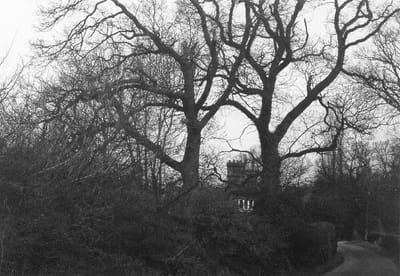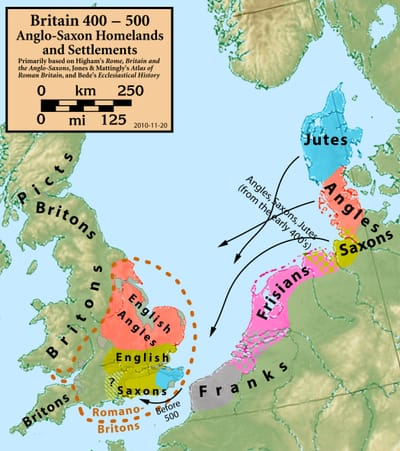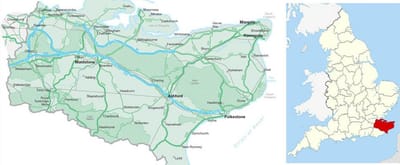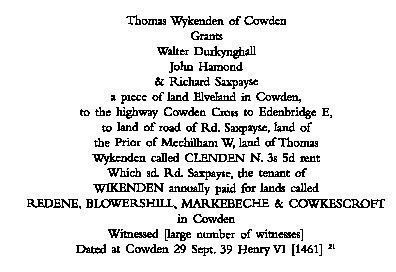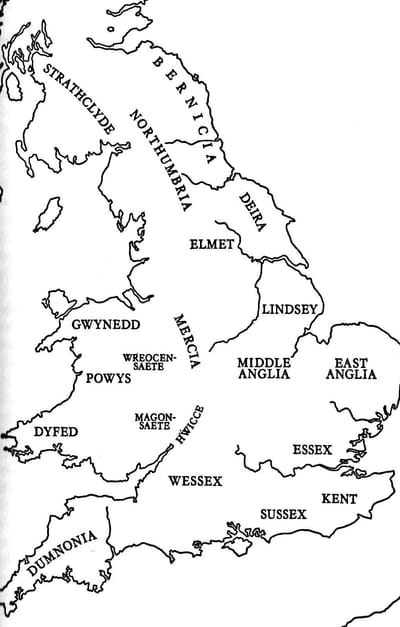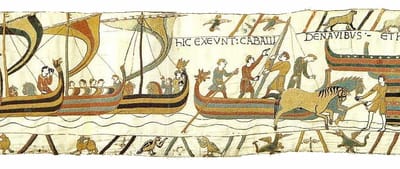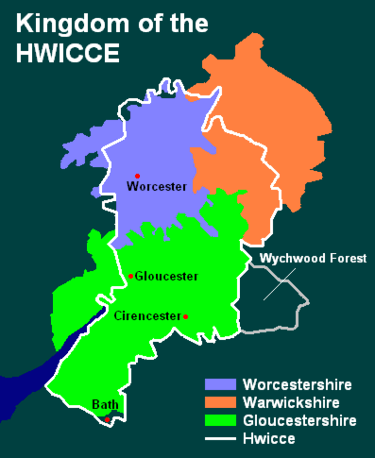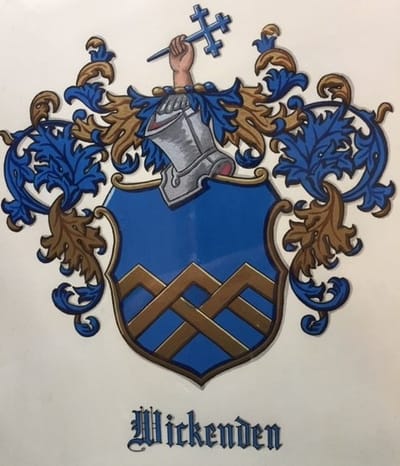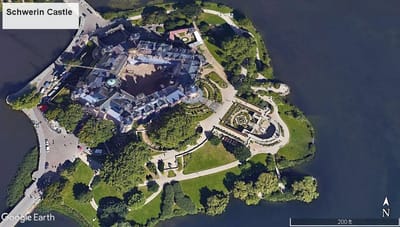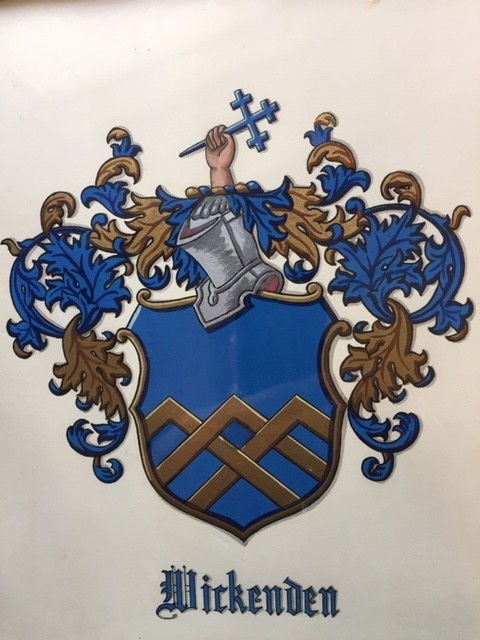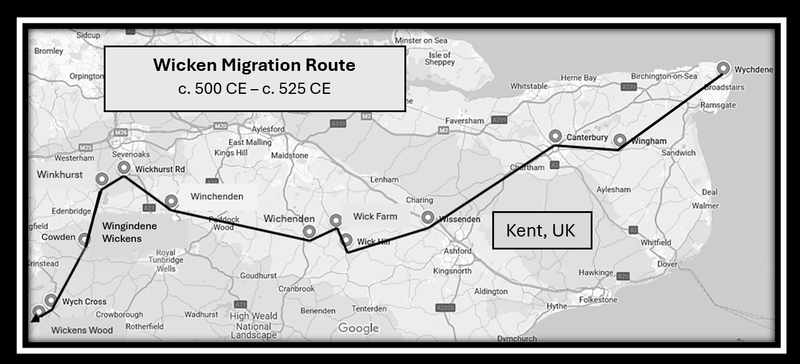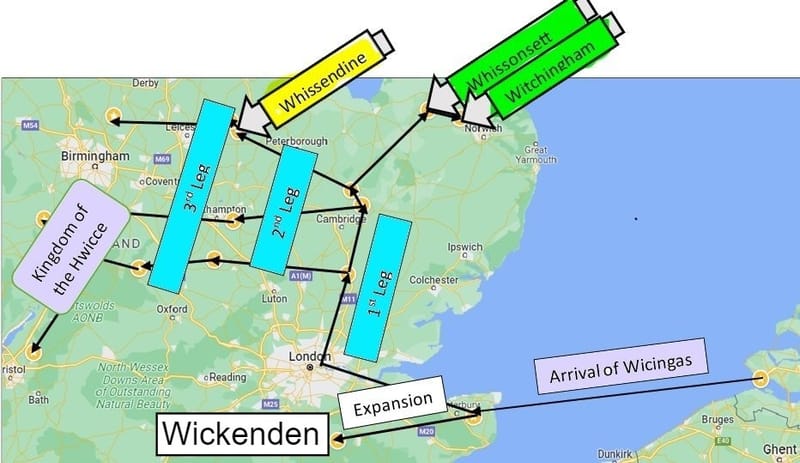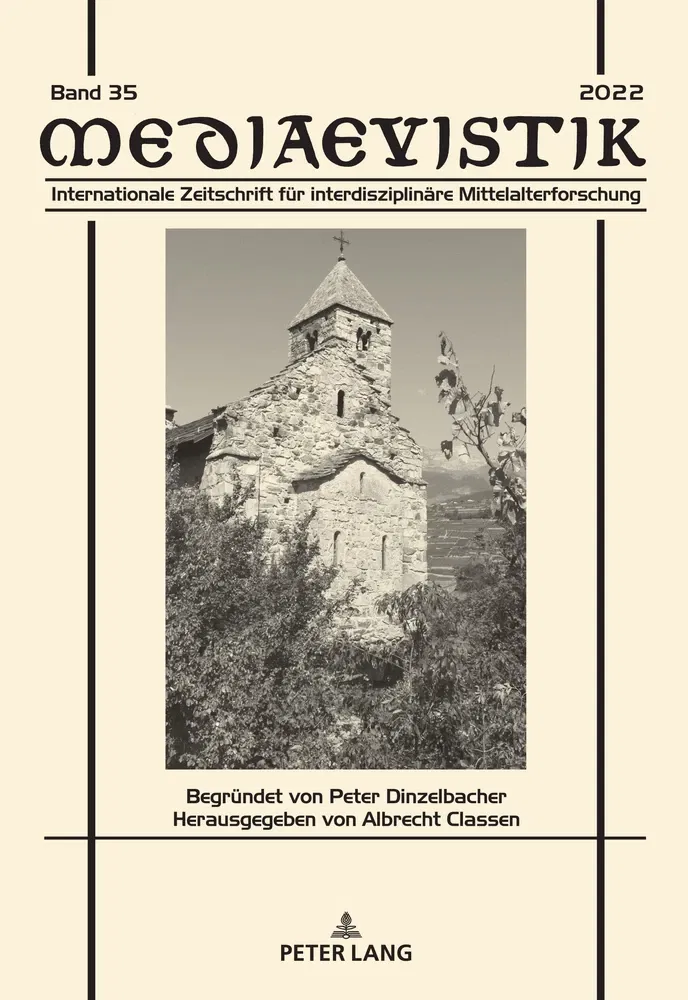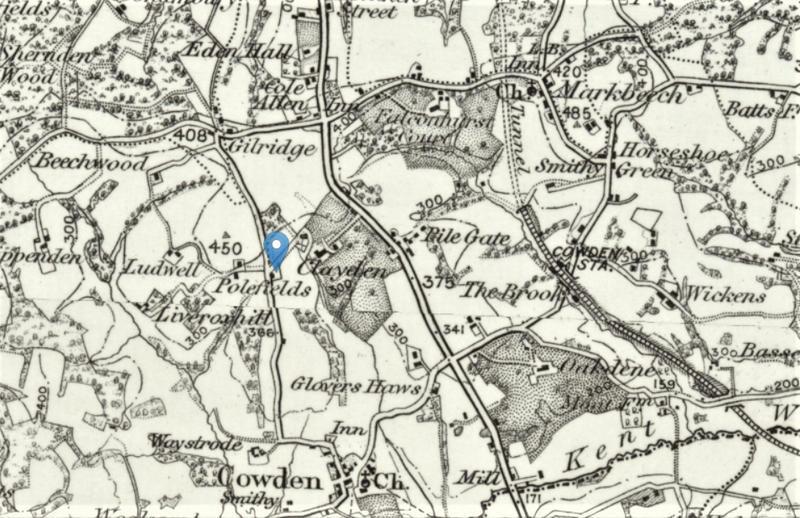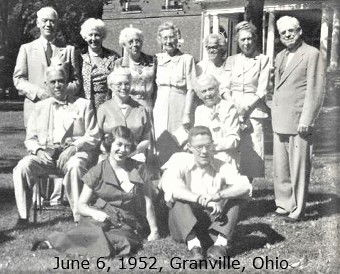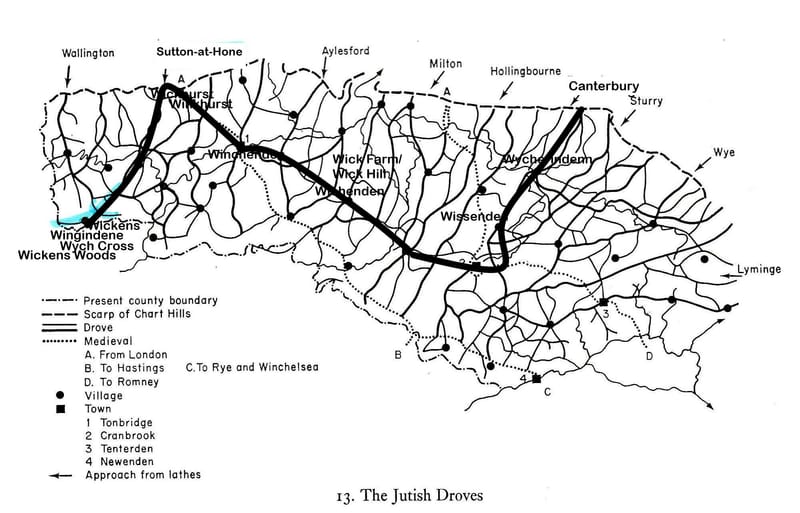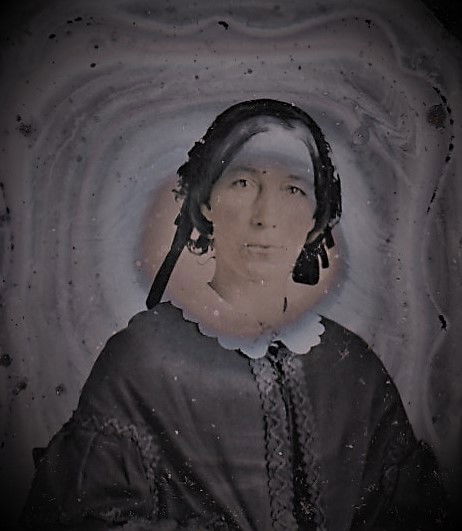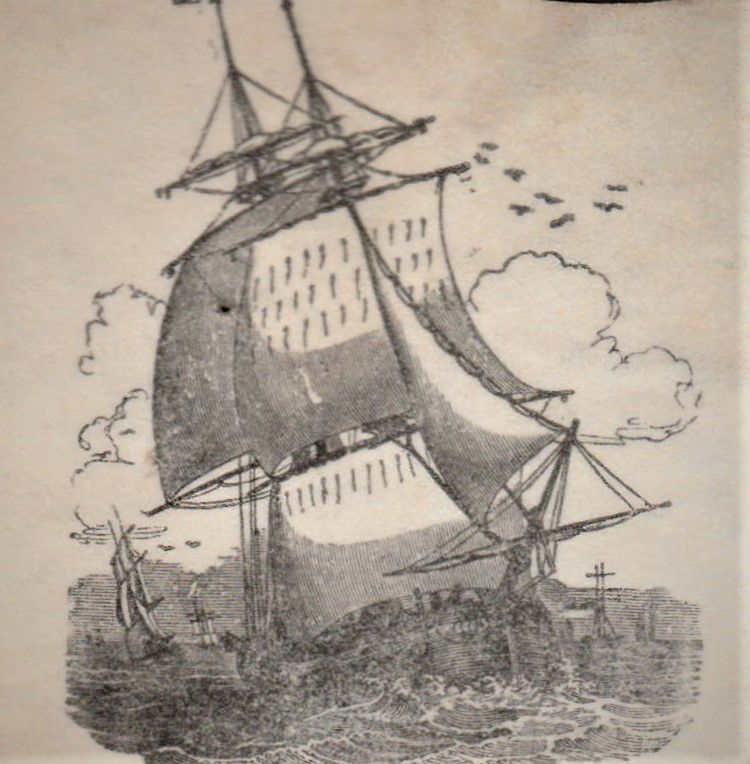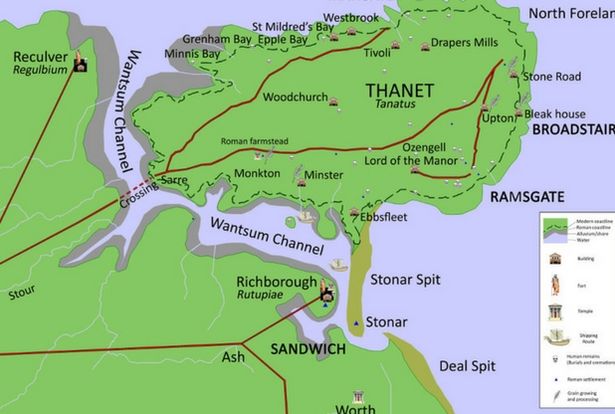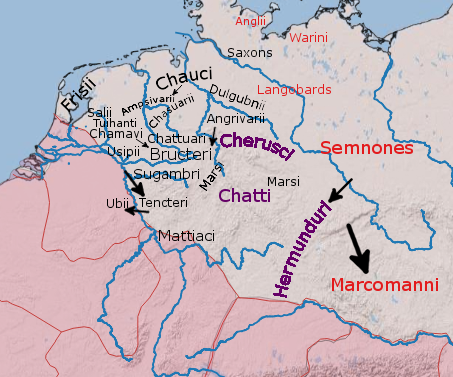The
Thomas Rogers Wickenden Families
Here you will find memoirs, pictures, and other biographical information about the family of Thomas Rogers and Ida Consaul Wickenden and the families of their ancestors, descendants, and siblings. Links are also provided to articles, maps and documentation about the history and pre-history of the Wicken clan of Angles as well as biographical information about the families of other Wickendens around the world.
About this collaborative site
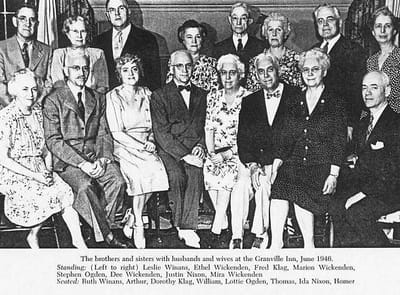
In 2019, Homer's daughter, Ruth Wickenden Abel, suggested it might be time to update the Memoirs. We decided to utilize the internet to build upon the original book in a manner that would be interesting and accessible to future generations. The book has been digitized. The complete book is attached to the Summary page at the start of the Thomas R Wickenden Families section, and each chapter has been included on an appropriate page of the website within that same section. Members of the eight families and other relatives are invited to join us in developing the Thomas R Wickenden Families section of the website and to help develop the Wickenden Family WikiTree.
Since its inception, the website has grown to include two other sections, one on Wickenden History and another on Wickendens Around the World. Wickenden History has been expanded to cover the prehistory of the Wicken clan of Angles on the Continent, as well as their migration across the Channel to Thanet, across Kent, and down into the Weald, where they established a den. The Wickendens of Cowden, their responsibility to provide Knights Service, the Early English Wickendens and the Kingdom of Hwicce are also covered. Another section has been laid out to describe Wickendens Around the World, but it has only a few initial entries. Finally a Research Forum has been added as a place for the study of all things Wickenden, and a Planned Events page is now available for future use. A F.A.Q. is available to see what kinds of questions have been asked and answered about the Wickendens, and a Google Map is available for participants to identify where in the world they are located. If you are not on the mailing list for updates, please subscribe by adding your contact information at the bottom of this site. All those interested in Wickenden families and friends are invited to collaborate in building and utilizing this site, and to add information, pictures as well as brief memoirs, reminiscences and even stories about our ancestors and their living descendants. As a result of its collaborative nature, this website is expected to be continuously under development!
ACKNOWLEDGEMENTS
This website would not have been possible without the encouragement, advice and contributions of Ruth Wickenden Abel and Ken W. Watson. I am also grateful to my wife, Beth, for her patience and her assistance with graphics and photos. We thank them, the members of each family, and everyone else who has contributed - or who might contribute in the future - to this ongoing family project.
TECHNICAL INFORMATION
There are various levels at which users can participate:
- Visitor - take a look at the site whenever you would like. It is constantly under development. Updates and plans are recorded in the blog below called News. Participation is welcome at all levels!
- Subscriber - to subscribe, provide your name and email address in the form at the bottom of the site. You will receive group emails describing additions to the site and other related information.
- Account Holder - to establish an account with SITE123.com, access the site and provide the requested information. You will have one or more free sites to use for learning or for recording your own memoir.
- Contributor - to add materials to this site, either send them to thwconsultingllc@gmail.com or establish an account with SITE123.com and inform the manager of this site at the same address to add you as a contributor.
Thomas Howard Wickenden II
Flagstaff, Arizona
published June 2019
revised May 2020
Contents
WICKENDEN HISTORY
This section includes information about the history of Wickenden, the journey of the Wicken from central Germany to Britain, the Kingdom of Hwicce, and the first Wickendens of Cowden, Kent, England. Other topics include Wickenden ancestors, such as those of Thomas Rogers and Ida Consaul Wickenden.
WICKENDENS AROUND THE WORLD
This section includes a brief biography, a few pictures, and links to other information about Wickenden families in England, the USA and countries around the world. It includes the siblings of Thomas Rogers and Ida Consaul Wickenden.
THOMAS R WICKENDEN FAMILIES
This section includes memoirs of the eight children of Thomas Rogers and Ida Consaul Wickenden and their families, with additional pictures, memoirs, reminiscences, stories, information and links to materials about them and about the families of four succeeding generations (to date).
MISCELLANIOUS ITEMS
In addition to these three main sections, this website also includes an invitation to Join Us in developing the site, an Historic Timeline connecting dates that are covered in detail in various pages of the Wickenden History section, a set of Frequently Asked Questions (FAQ), a Research Forum, planning for Future Events and News items about the development of the site. Click on the appropriate section in the Website Header above or below to see these items.
WICKENDEN HISTORY
This section includes compilations of information about the origin of the Wickenden name, as well as legends, early historical records and genealogical research on individuals and branches of the Wickenden family. The authors (with publication dates) include Alfred Wickenden (1939), Homer Wickenden (1962), Ken Watson (2004), and Thomas Wickenden (2019).
Read MoreWickendorf, the name for a village associated with the Wicken, a clan of the tribe of Angles, is found in Poland, Austria, and Germany. Wickenburg, the name of a mountain associated with the Wicken is also found on the Continent in Germany and the Netherlands. This page traces the migration of the clan, along with other Germanic tribes up north near Angeln, then down to the Frankish Rhineland, across the Channel to Britain, and south to the Wicken den, deep in the Weald of Kent.
Read MoreFrom our place in history, we seek to travel back in time, to find a pathway back to the Wicken den in the Weald of Kent. This article begins by proposing that we explore possible pathways, beginning with family trees and then linking those branches and trunks back to the their roots in Cowden. This article also reverses the process by mapping the growth and movement of the first Wickenden families, by decade and by century, until some of us began to depart England for distant shores.
Read MoreWickenden was a homestead in Cowden, Kent, England, mentioned in local church records. Like many other "den" names in Kent, it described a settlement made by the folk who drove their animals down from the south shore of the Thames to forage for acorns in the forest. From this Wicken den, the earliest Wickendens took their name.
Read MoreThe Hwicce were a prominent clan of the tribe of Angles. Some may have come to England with the early Saxons and Jutes and established the Wicken den. Others moved further West and established the Kingdom of Hwicce, which became part of Mercia and eventually the nation of England.
Read MoreThe Wicken may have been a clan or subtribe of the Angles, one of various Germanic Tribes. The Angles, their settlement of England, and the subsequent history of the Wicken (Hwicce) are referred to in various historical documents. What do these documents suggest and what is the likely involvement of the Wicken and the Wickendens in the major events of English history?[UNDER CONSTRUCTION]
Read MorePlace-name evidence suggests that the Wicken were a clan of Angles who migrated across the Continent, the Channel, the County of Kent and the Southern Midlands of Britain to establish a Wicken den in Kent and the Kingdom of Hwicce in the Western Midlands.
Read MoreViewers will already have some reason, personal or professional, for exploring this website. However, other perspectives on Wickenden Family History that may be of interest include: Genes (DNA), Memes (Coats of Arms), Seams (Websites), Schemes (Family Trees), Themes (Mottoes) and Dreams (Stories). This page briefly touches on each analytical approach and suggests why and how it might be useful.
Read MoreTHOMAS R WICKENDEN FAMILIES
WICKENDENS AROUND THE WORLD
USA Thomas Rogers Wickenden - Brother of James Wickenden and Robert John Wickenden
Thomas Rogers Wickenden (1853 -1924) married Ida Consaul (1855 - 1927) and was the father of 8 children. In the section of this website titled Thomas R Wickenden Families, pictures, information and chapters of a memoir written by these 8 children are provided along with information on five generations of their descendants.
MAP AND OVERVIEW - THIS SECTION INCLUDES SUMMARY INFORMATION, LINKS AND A MAP OF WICKENDEN FAMILIES, PAST AND PRESENT
Wickenden families originated in Cowden, Kent, England. Now they live in over a dozen countries. Who are these families? Where do they live? How are they related? Why, when, how did they emigrate from England? Who has continued to live in England and the UK? How have their families grown, and how have they lived? How have they endured, what are their lives like now, and how do they see the future - for their countries and for our world? These are some of the questions that will be answered as Wickenden families contribute their stories (Please Do!) to this section of the website, to the Wickenden Wikitree (a collaborative family tree), and to the map of Wickendens Around the World.
USA James William Wickenden - Brother of Thomas Rogers Wickenden and Robert John Wickenden
James William Wickenden married and had three sons: Roy, Ernest, and Rollin. Rollin was the father of James and Richard Wickenden, who were headmaster and department chair, respectively, of Tabor Academy in Marion, MA. James' son is founder and President of Wickenden Associates in Princeton, NJ.
USA/FRANCE Robert John Wickenden - Brother of Thomas Rogers Wickenden and James William Wickenden
Robert John Wickenden married Ada Ahier of the Isle of Jersey. They lived in Auvers, France and had seven children: Alfred, Alice (Fifille), Henry, Yvonne, John, Marguerite, and Robert.
USA Frank Irving Consaul - Brother of Ida Consaul
Frank married Cora Thorp. They adopted a daughter, Lillis (Mrs. Lillis Diehr of Wooster, Ohio), and a son, Leslie (Mr. Leslie Consaul of Huntington, West Virginia).
USA Jennie Lind Consaul - Sister of Ida Consaul
Jennie married Arthur Taylor. They had no children. Phatuel Willaim Taylor of Canton, Ohio, and John E. Taylor of Toldeo, Ohio, may be related.
USA Jessie May Consaul - Sister of Ida Consaul
Jessie married Lloyd Whitcomb. They had four sons: Laurence, Ward, Charles, and William.
USA Dan Wickenden and Dorothy Wickenden, his daughter - Authors
Dan Wickenden (1913-1989) was an author and retired senior editor at Harcourt Brace Jovanovich, the book publisher. His daughter, Dorothy Wickenden, is Executive Editor of The New Yorker magazine.
USA John William Hook III
John is the eldest son of Charlotte Ruth Winans Hook and John William Hook. His grandparents were Ruth Wickenden Winans and Leslie H. Winans. He is married to Susan Faye LeFevre Hook who is very active in the LeFevre Family Association which is part of Historic Hoguenot Street in New Paltz New York. Their offspring are Ruth Elaine Hook Warneck (married to Tim Wareneck with children Matthew and Grace Warneck) and Perry Arthur Hook (married to Jessica O'Connor with children Felix and Quentin Hook). Susie and he live in Warminster, PA.
CANADA - Donna Wickenden Thibodeaux - Born in Merritton, Ontario, Canada
Donna was born Donna Grace Wickenden in 1938 in Merritton, Ontario, Canada. Her father George Herbert Wickenden was born in London, England in 1904. George married Gladys Wanieta Ball in Ontario Canada. His father was Edwin Thomas Wickenden married to Amelia Ferrier McEwen of London, England. They moved to Canada in 1907.
ENGLAND/USA Robert Quaife - Brother of Charlotte Quaife Wickenden
Robert Quaife, older brother of Charlotte Quaife Wickenden, played a significant role in the lives of the Wickenden family.
ENGLAND/USA William Wickenden - Co-founder of Rhode Island
William Wickenden (c. 1614–1671) was an early Anglo-American Baptist minister, co-founder of Providence Plantations, and signer of the Providence Compact. Wickenden Street in Providence marks where he originally settled in the seventeenth century and is named in his honor.[1]
ENGLAND John And Clarice Wickenden
John comes from a branch of the family going back to George Wickenden (born 1770). The line then passes to another George (b 1820), then Frederick (b 1856), then Ernest (b 1884), then Bernard (my father b 1924). The family also believe they originated in Cowden and there were many family connections to Tunbridge Wells, Kent until the last war.
INVITATION TO OTHER WICKENDENS
Please contribute or add a link to this page. Use the JOIN US form to let me know your interest, and select a few pictures and a short paragraph about your family, including when and from where they emigrated to your current country. Include links to your family tree and to family memoirs if you have them and add a marker to the map. Thank you!
SMALL WORLD
Juniper Lior Wickenden with her father, Thomas Aaron Wickenden.
Read MoreJoin us
- Please read the Invitation at the end of a section and use this form to contact me if you would like to contribute material to that section. Thank you.
History Timeline
PREHISTORY
The Wicks or Wicken (Hwicce in Latin) may have been a prominent family group or clan of the tribe of Angles. A series of places with names like Wickenburg and Wickendorf mark the movement of the Wicken from Poland and Austria up through Bavaria and central Germany to the Jutland Peninsula, where Angeln is now located.
Learn More1/1/0100SETTLEMENT IN ANGELN
The Angles were known to have settled in northern Germany on the Jutland Peninsula, a location today known as Angeln. From there, they moved down the Frisian coast of the North Sea to the land of the Franks, and from there they crossed the Channel to Britain.
Learn More1/1/0350MIGRATION TO BRITAIN
According to Bede, Vortigern invited the Anglo-Saxons to serve as mercenaries to help defend the British against the Pics and Scots. Hengist and Horsa lead several boats of warriors to Britain.
Learn More1/1/0450SETTLEMENT ALONG THE THAMES
Also according to Bede, Vortigern told the Anglo-Saxons to leave, but they refused. They were granted the island of Thanet (no longer an island), but after a series of battles, the British fled to London and the Anglo-Saxons settled the south shore of the Thames.
Learn More1/1/0500ESTABLISHMENT OF THE WICKEN DEN
As Kent was being settled by the Anglo-Saxon and Jutes, "the ancient Weald was left in its original forest state to serve as a vast commons where herds of swine could be fattened on acorns and beech mast; the earliest place-names being those of the swine pasture or 'den-baera'. Some hundreds of these have survived; they account for the great majority of the names of villages, hamlets and farms and can also be picked up in those of many woods and fields. They do not start to appear in writing until the early eighth century and many of them first appear in medieval documents, but their origin is certainly deeper" (Witney, p. ).
Learn More1/1/0600OTHER WICKEN MOVE FURTHER WEST
Other Wicken, called "Hwicce" in Latin, moved past London to the southern midlands and together with local British and others settled in what became known as the Kingdom of Hwicce.
Learn More1/1/0700WICKENDEN, PART OF THE LEWISHAM MANOR
The original grant of the Manor of Lewisham was by Elstrudis, the daughter of Alfred the Great and wife of Baldwin, Count of Flanders, to St. Peter's, Ghent, in 918. The grant was confirmed in 946 by "Edgar king of the English." William the Conqueror granted a fresh charter and added the five tenements in Cowden, including Wickenden, for pannage of swine in the forest (Ewing, p. 20).
Learn More1/1/0918THE FIRST WICKENDEN ON RECORD
Martin de Wiggendenn was mentioned in Archaeolingio Cantiana in Cambridgeshire (according to Ewing, p. 250?)
Learn More1/1/1200WICKENDEN LEASED TO RICHARD SAXPAYSE
A document dated 29 September 39 Henry VI [1461] in Cowden, Kent, and signed with multiple witnesses indicates that Thomas Wykenden of Cowden, who is living in Clenden, has leased Wikenden, located just to the West, to Richard Saxpayse. See Wickendens of Cowden for a picture of the document.
Learn More9/29/1461WICKENDENS MOVE INTO COWDEN AND BEYOND
As the original Wickenden family grew, they established and occupied other homesteads throughout Cowden. Shortly thereafter, they began to migrate beyond Cowden, as indicated by marriages recorded in other parishe registers.
Learn More1/1/1500WICKENDEN IS "LOST"
The place of Wickenden on the list of Church Marks (indicating the portion of the fence enclosing St. Mary Magdalene Church in Cowden which is to be maintained by each homestead) is replaced by Polefields.
Learn More1/1/1623WICKENDEN IS "FOUND"
After nearly four centuries (1623 - 2021), the most likely location of Wickenden is published on the Wickenden Families website. In a section on the Wickendens of Cowden, Thomas and Beth Wickenden describe how they traveled to Cowden in 2000. They walked Spode Lane and documented in photographs the clues to the location of the Wicken den. See Wickenden Homesteads in Cowden to see and read the clues!
7/1/2000F.A.Q
GENEALOGICAL QUESTIONS - (See the following)
- Who are the people in the top row of the Home page of this website? Were they Quaifes and/or Wickendens?

- Who were the father and mother of James Wickenden, said to be born about 1738, perhaps in Strood, near Rochester, Kent, England? Ken Watson and Thomas Howard Wickenden II would like to trace their ancestry past this James Wickenden. - However, see the recent article on Possible Pathway for Aaron Wickenden on the Pathways to Cowden page of the Wickenden History section for a possible answer to this question.
- Which branch(es) of the Wickenden family can trace their line(s) back to Cowden, Kent, England?
- What was the relationship of the Quaifes to the Huguenots of France and the Consauls to the Huguenots of Spain or their predecessors?
- How did Emmanuel Gonsales sail his own ship to America?- See the recent addition to the Ida Consaul section of the Wickenden Family Wikitree for more information on this ancestor.
- Is the Consaul family (also known as Consaulus and Gunsaulus) of Schenectady, NY, and Toledo, Ohio, related to other families with similar names, such as Gunsallus, which is common in central Pennsylvania?
- How did the "Consaul Street" in Schenectady, NY, and in Toledo, OH, obtain their names? How did "Wickenden Street" in Providence, RI, obtain its name? What other streets and landmarks across the USA have names related to the Wickenden families?
Who are the people in the top row of the Home page of this website?

- DATE OF PHOTOGRAPH - Since Thomas Howard Wickenden, the baby in Ida's lap, was born in late May, 1888, the photo was likely taken in the fall of 1888, when Thomas was three or four months old.
- TOP ROW -
- The woman at the left, is most likely either Jennie or Jessie, one of the twin sisters of Ida. She has the same wide eyes that ida has.
- For the purpose of arranging the couples, her twin sister may be on the extreme right hand side. Although we can't see her eyes well, she has a similar face with a soft chin and the same hair style. The second woman on the left has a stronger chin, her eyes slant sightly down at the corners, she is a bit shorter than the twins and most importantly, she has a different dress. The women on the two ends are about the same size and each has the same dress with the black satin ruffles running down the front.
- It may be that the next couple is James, Roberts son, standing next to his wife on his right. He is leaning toward the woman who might be his wife. The two girls in the front row may be theirs. The one on the left resembles her mother while the one on the right resembles her father.
- In the center of the line are John, father of Bessie, and his wife to his right (left as we look at the picture). She is turned toward her husband, to indicate their relationship and almost form a family grouping with her father-in-law and daughter, Bess, standing with her Grandfather.
- Who are the next two, a woman and man. Are they a couple? The woman is quite stylish, with a close fitting black cress
- Candidates for the man would include Frank Consaul, Ida's younger brother, who would have been 20. He would not marry Cora until three year's later, and even if they were formally engaged, it is unlikely that she would participate in a family picture. The woman might be a daughter of Rev. Robert Quaife, although she doesn't seem to resemble either brother or her mother directly below. Another candidate for the man would be Samuel Jarrett, a brother of Robert Quaife's wife, Aunt Sarah. The women would then be his wife. Samuel was a builder and had constructed the House at 602 Starr Avenue in 1886, two years before, so he had close ties to Thomas Rogers and Ida, and as a relative of Aunt Sarah, he would give each of the principles in the photo (Charlotte, Thomas Rogers and Ida, Robert and Sarah, a relative in the picture. They are also positioned directly behind Sarah. That would mean that except for the twins, the top row consists of the Rev. Robert Quaife's two sons and his son-in-law and their wives (with children below).
- This couple might also have been Robert John Wickenden and his wife Ada, only they do not resemble family photographs and according to Robert's diary, they were living in France, doing business in Paris and exploring life in Auvers at this time. So, Samuel Jarrett and his wife are the most likely candidates to date.
- MIDDLE ROW - Unknown boy is wearing a dress, so is probably a girl, and if the couple standing above Rev. Robert Quaife is his son John and daughter in law, this is probably their daughter Bess.
- FRONT ROW - Lottie would have been 8 years old, William 6, and his sister above him would have been 2.
GEOGRAPHICAL QUESTIONS
- The first geographical question is: WHERE WAS WICKENDEN?
See the page on Wickendens of Cowden for one answer to this question!
HISTORICAL QUESTIONS (see the following):
Did the Hwicce live in Germany and move to what is now Denmark?
- What forces encouraged them to move?
- Why did they move away from the coast?
Were the Hwicce a clan of Angles?
- Were the Hwicce a clan of Angles?
- When were the Hwicce identified as a separate clan?
- What evidence is there of Wick names in central Germany, such as Wickenburg?
- What is the meaning or origin of the name Wick and the spelling Hwicce?
Did the Hwicce sail down the coast and across the Channel to Britain?
- What does the story in the poem Beowulf indicate about this?
- What do other historical documents indicate about this?
Did many of the Hwicce move up the Thames into the Kingdom of Hwicce?
- Was it through East Anglia?
- Was it along the Thames and directly west?
- Was it up from the Isle of Wight?
What historical events might the Hwicce have been involved in?
- the legendary invasion of Britain and settlement of Thanet led by Hengist and Horsa ?
- the historic British defensive against the Pics and Scots, led by Vortigern?
- the historic Anglo-Saxon revolt against the British leader Vortigern resulting in British withdrawal from Kent to London?
- the historic British defensive against the Anglo-Saxons, led by Ambrosius Aurelianus and/or the legedary King Arthur culminating around 500 at Mons Badonicus?
- the historic Anglo-Saxon defeat of the British culminating around 577?
- the historic visit of St. Augustine to Kent in 597?
- the revolts of the Kentish men against King Offa of Mercia and his successor King Cenwulf at the end of the 700's?
- the overhrow of Mercia by Egbert of Wessex at Ellendun in 823?
- the Danish wars that followed?
- the historic defeat of the English under King Harold II led by William the Conqueror and the Normans at Hastings, Kent, in 1099?
Did some of the Hwicce establish the Wicken den?
- Were any of the other Den names used for clans of Angles?
- Were there other Wick place names along the route followed by the Hwicce?
- Was the “Wickens” homestead in Cowden also settled by the Wicks?
- What are the other Wick names in the Kingdom of Hwicce and around England?
When and why did some of the Wickendens leave Cowden?
- The Black Death
- Other problems
- Emigration trends
Which Wickendens stayed in England?
- Still
- For how long?
- Where
- How close to Cowden?
- Rochester?
Where else in the world are Wickendens now located?
- In what other countries?
- When and why did they emigrate?
What effect does this history have on living Wickendens?
- How many have participated in DNA testing?
- How many are included in family trees?
- How many have visited or participated in the Wickenden Families site?
What should the Wickenden motto be?
For example, one suggestion would be
"When individuals strive, families survive." The Latin translation of this motto is:
Cum persona contendunt, familiis superesse.
This motto mentions the survival of families, which is the main theme that emerges from this website. It also suggests that the survival of families is due, at least in part, to the striving of the individual members of the family. It is usually the individual Wickendens who are mentioned in historical documents like parish records, wills, and court rolls. But it is the relationship between the individuals and the family that is the key to family history.
One story from my personal Wickenden history is that my great great grandfather, Thomas Wickenden rose to become captain of a three-master schooner sailing out of Rochester, Kent. When his ship was wrecked on New Year's Eve, 1861, and he and all aboard drowned, his wife, Charlotte, proceeded to get a job, give birth to a third child, raise and educate her sons and emigrate with them to Toledo, Ohio. Once there, she saw them all get jobs, marry, and raise their own families. I feel that both Thomas and Charlotte strove to succeed in life, and it was through their courage and sacrifice, that their branch of the Wickenden family survived.
This motto also rhymes in English. The Latin translation has repetitive C's in the first phrase and S's in the second, which alliteration gives it a sense of gravity.
2/6/2021 - There is a tv show that my wife and I like to watch on Masterpiece Theater in America called "Endeavour." It's supposed to be the name of the main character, Endeavour Morse, a British detective living and working in Oxford. I thought this might be a good motto, although not in Latin - the translation is "iugiter annitatur," which means "trying hard always." However, it looks and probably sounds ugly. But in English, the motto, a single word, would be both meaningful and impressive sounding. However, I also read that Endeavour was the name of the ship sailed by the explorer James Cook. Unfortunately, it was sunk in 1778 during the American revolution leading to the battle of Rhode Island. On the other hand, it has also been used as the name for many ships and several spaceships, such as the Apollo 15 lunar module (the 4th to land on the Moon) and several on Star Trek as well.
2/15/2021 - Another motto which is the name of one of the moon rockets is "Perseverance." The Wicken/Wickenden have perservered if nothing else. And isn't that the secret of life - of evolution? In Latin it would be Perseverantia.
LIVING HISTORY - How have Wickendens around the world survived during the COVID-19 Pandemic?
2020
In the USA, the virus arrived before we knew it, perhaps brought directly from China and indirectly from Europe by Americans returning home from trips abroad. The Trump Administration encouraged the development of a vaccine by drug companies (and approval by the FDA) at "warp speed," but otherwise took no responsibility for coordinating a national response to the public health emergency, leaving all official reaction to the discretion of states and towns. The former president and his administration also favored a quick restart to the economy and therefore criticized efforts by governors and mayors to "flatten the curve" of infection by ordering the wearing of masks, the closing of businesses and schools, limits on the size of parties and meetings, and other forms of lock down to prevent spreading the virus.
As a result, over 500,000 Americans died from COVID during the last year, putting America as the world leader in terms of deaths per capita. This crisis has also revealed that previous disparities in wealth and in health care between rich and poor and between majority and minority populations have increased. Meanwhile, because of efforts such as the Federal Reserve to keep interest rates as low as possible and the Congress to provide monetary relief to businesses and unemployed workers, the stock market has been soaring to record levels.
The new Biden Administration has purchased vaccines, set national goals, developed and implemented distribution plans, and managed a public relations effort to get shots in arms as quickly as possible. However, opinions vary as to whether or not the vaccination rate will outpace the spread of new variants of the virus and, as a result, whether or not the population will undergo a fourth wave of infection. Officials such as Anthony Fauci believe that with the new vaccines, we will get the virus under control and return to a semblance of normality by the end of 2021, probably with some continuation of mask-wearing and social distancing. Even so, questions and concerns about the effect of a "lost year" on school-age children, the long-term effect of the virus on survivors, the date when businesses and schools can reopen safely, and the pace at which the economy will recover remain unanswered.
2021
As of July, it looked like the campaign to vaccinate the public had succeeded to the point where vaccinated people could stop wearing masks and public and private organizations could begin to relax their guidelines. However, with the advent of the Delta Variant, which appears to be far more infections, infection rates began to rise once again, especially among the unvaccinated. Guidelines for mask-wearing and social distancing are once again being implemented. The public reaction has been one of disappointment. However, most are resigned to complying with the renewed guidelines. Some continue to politicize the issue. Those who are unvaccinated are divided between the hesitant and the anti-vacers. It is projected that this new surge in infections will peak in the fall. It remains to be seen whether this will cause a major dip once again in the economy, just as the governmental programs to assist us through the last surge will be ending.
Research Forum
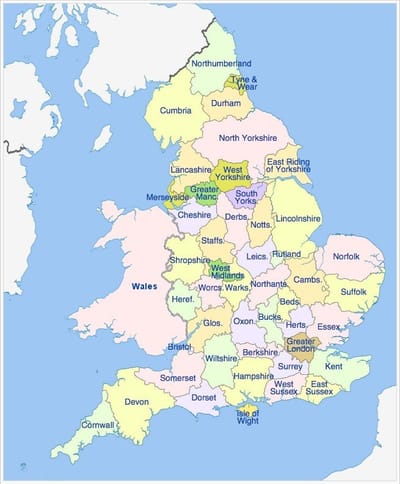
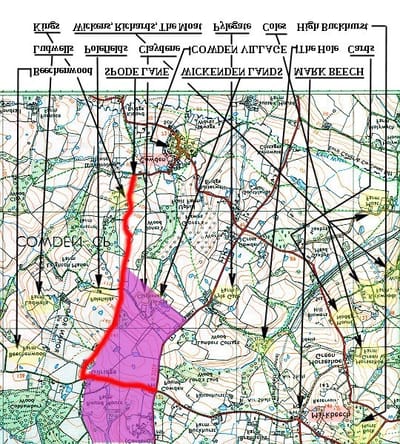
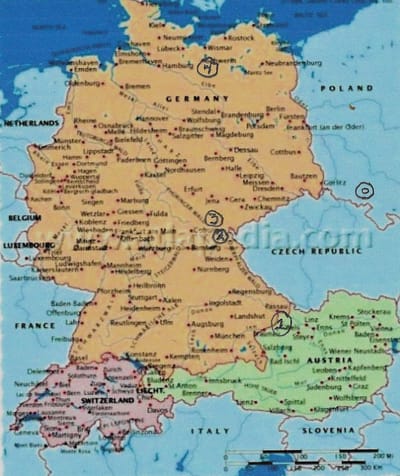
Future Events
Anyone with an idea and an agenda for a virtual meeting of Wickendens in an area, country, continent or across the world, is invited to contact this website and utilize this feature to help organize the event.
Since Wickendens have left placenames across the world, it might be interesting to organize tours of some of these locations. These tours might include: 1. The Kingdom of Hwicce - including locations with Wicken-inspired place names in the west midlands. 2. The Wickendens of Cowden - including the dozen or so homes in Cowden known to have been established, owned or associated with Wickendens. 3. Wicken across Kent - including the half-dozen or so places in Kent whose names were inspired by the Wicken. 4. Wicken across the Continent - the dozen or so villages in Poland, Austria, Bavaria, Germany and the Netherlands with Wicken-inspired place names, such as Wickendorf and Wickenberg.
Building upon current family reunions, it would be interesting to organize larger reunions of Wickenden Friends and Family from a region, a country or a continent. With this experience, if successful, we might want to attempt a world-wide reunion of Wickendens from across the globe.
The Wickendens have never had a reunion of family members from across the world. It would be interesting, if regional and national reunions were successful, to plan for a global reunion, perhaps in and around Cowden, Kent, England. Any suggestions for a date, a theme, and volunteers to organize and manage the event would be welcome!
ABOUT

You can edit all of this text and replace it with what you want to write. For example you can let them know how long you have been in business, what makes your company special, what are its core values and more.
Edit your About page from the Pages tab by clicking the edit button.
The About page is the core description of your website. Here is where you let clients know what your website is about.
You can edit all of this text and replace it with what you want to write. For example you can let them know how long you have been in business, what makes your company special, what are its core values and more. Edit your About page from the Pages tab by clicking the edit button.
News
FROM THE WICKENDEN FAMILIES WEBSITE-- NEW YEAR UPDATE Happy New Year to Wickenden Families and Friends! Should old acquaintance be forgot and never brought to mind? - The map above brings to mind our old ancestors, the Wicingas, from their arrival in Kent around 450 to the creation of the Kingdom of Hwicce in the Western Midlands by 600.
Read MoreAn article was published in Mediaevistik about the early medieval history of the Wicingas, ancestors of the Wickenden. Also, notice is provided that the website editor's email was hacked. Please ignore any fake messages asking to respond or to send a gift card.
Read More